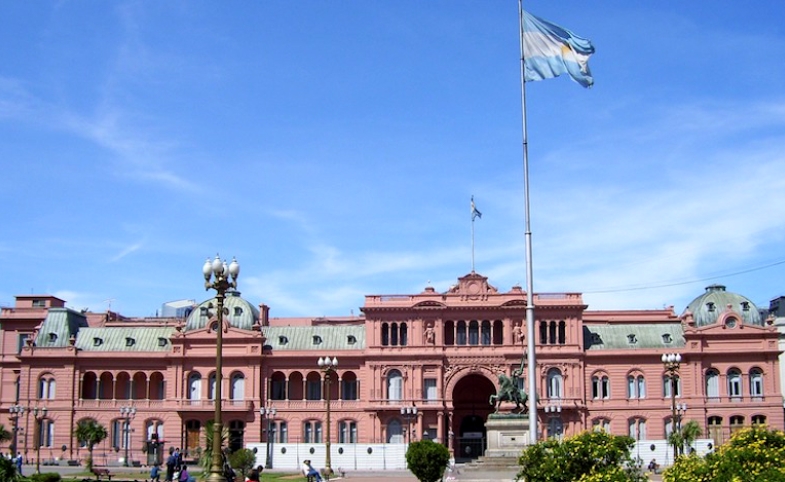More than at any other time, digital diplomacy activities have seen an upward trend under Indian Prime Minister Narendra Modi. Recently, the Ministry of External Affairs (MEA) launched a Performance Dashboard with the aim to...
KEEP READINGThe CPD Blog is intended to stimulate dialog among scholars and practitioners from around the world in the public diplomacy sphere. The opinions represented here are the authors' own and do not necessarily reflect CPD's views. For blogger guidelines, click here.

Electoral Reform Can Strengthen Argentina’s Presidential Elections
In many ways, Argentina’s transition to democracy from the wreckage of its “Dirty War” dictatorship is an enduring success story at a time of global democratic backsliding. Despite regular economic crises, Argentina’s newly democratic institutions have survived nearly four decades without interruption. This year, Argentina received a “Free” rating in the Freedom House annual report, with South America’s third-highest score for freedom, political rights and civil liberties.
A closer look, however, reveals a political system under deep stress, shaken by a financial quagmire and taxed by toxic partisanship. The country’s economic fragility and political divides have turned its October elections into a tense and high-stakes contest, as voters choose between the center-right incumbent, Mauricio Macri, and his predecessor and archrival, the leftist Cristina Fernández de Kirchner, who is running for vice president alongside her former chief of staff, Alberto Fernández.
Since Argentina’s return to democracy, its electoral authorities, practices and systems have proved to be generally reliable, even in close contests. Understandably, the democracy assistance community has largely focused on younger or more troubled democracies.
But Argentina’s election system is far from perfect. And this year’s bitter campaign could draw harsh attention to its weaknesses and shake voter confidence as skepticism about public institutions rises.
That is why our organizations—the Wilson Center’s Latin American Program and The Annenberg Foundation Trust at Sunnylands, in partnership with the International Institute for Democracy and Electoral Assistance, known as International IDEA—launched an initiative to help strengthen Argentina’s electoral process.
By convening international experts, political rivals and senior executives from social media companies, we believe we helped advance the national debate about vulnerabilities to Argentina’s election system.
In March 2019, in close cooperation with Argentina’s election commission, the Cámara Nacional Electoral, we hosted a roundtable in Buenos Aires that brought together election experts, executives from Twitter, Facebook and Google, and senior representatives of Argentina’s major political parties and movements—fierce rivals who rarely sit at the same table.
The roundtable addressed three major themes: campaign finance reform, the responsible use of social media and the orderly transfer of power. For hours, experts and civil society leaders from Mexico, Chile and Argentina discussed complex and sensitive election issues with influential Argentine lawmakers and party officials.
Afterward, participants and our local partners congratulated us on the gathering, emphasizing that the subject matter and diversity of participants was an achievement whether or not the discussion produced any movement on electoral reform. Still, as outsiders, we remained hopeful that months of civil society campaigning, and our high-level summit, might have generated some momentum for reform.
Leading Argentine civil society organizations—including Centro de Implementación de Políticas Públicas para la Equalidad y el Crecimiento, Fundación Red de Acción Política and Poder Ciudadano—had labored mightily to raise the profile of election issues, though it was not clear their efforts, and our contribution, would pay off in time for the October election.
Never did we expect what has taken place in the weeks since our workshop.
The Argentine congress, after repeatedly deadlocking on the issue, passed significant campaign finance reform. Among other important elements, the bill banned cash donations, which all parties have relied upon to circumvent campaign finance restrictions, including limits on contributions. Few experts thought an agreement was possible so close to the election, though improper cash contributions and overspending by campaigns were open secrets.
Progress on responsible social media use by campaigns seemed even less likely. After all, the issue has bedeviled democracies worldwide, including neighboring Brazil, where last year’s election was marred by the widespread abuse of WhatsApp.
At our roundtable, participants, including Argentine lawmakers, peppered social media executives with questions, prompting detailed explanations about preventative company actions, including efforts to limit misinformation and remove bots. But the path toward rules of conduct for political campaigns seemed uncertain.
To our delight, the discussion of social media use by campaigns continued, with active company involvement. Late last month, Argentina’s national electoral authorities invited us to a signing ceremony where political party representatives and social media companies committed to “mitigate the negative effects of the dissemination of false content and other disinformation tactics in social networks and digital environments.”
The informal agreement has no legal standing or enforcement mechanisms, but it will serve as an accountability measure for political parties and civil society organizations, and create a political cost for violators.
The Wilson Center and Sunnylands recognize that our contribution was not responsible for the campaign finance reform and social media compact—or pending legislation on presidential transitions. Nor are we naive enough to expect that these advances have solved Argentina’s complex electoral challenges.
But by convening international experts, political rivals and senior executives from social media companies, we believe we helped advance the national debate about vulnerabilities to Argentina’s election system.
In doing so, we also demonstrated the positive effect that research organizations, foundations and civil society groups can achieve by targeting resources toward an urgent problem, convening the right people at the right time, and catalyzing action by a country’s leadership.
Visit CPD's Online Library
Explore CPD's vast online database featuring the latest books, articles, speeches and information on international organizations dedicated to public diplomacy.
POPULAR ARTICLES
-
January 29
-
January 20
-
January 28
-
January 2
-
February 6
Join the Conversation
Interested in contributing to the CPD Blog? We welcome your posts. Read our guidelines and find out how you can submit blogs and photo essays >.














